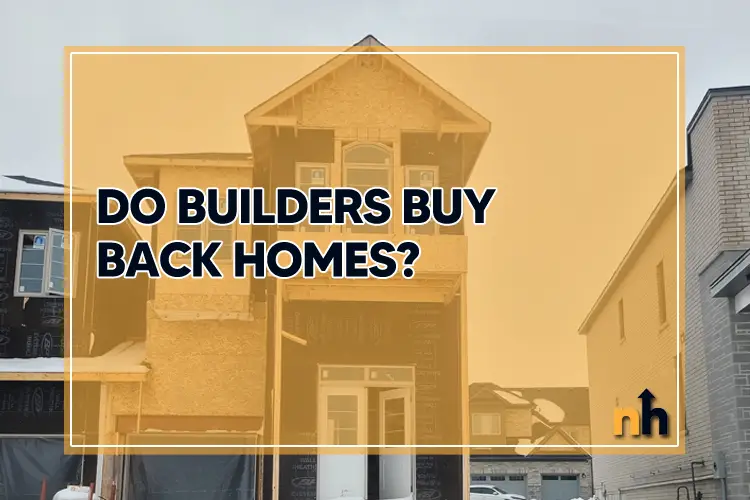No, builders do not buy back homes because there is a binding contract between a builder and a buyer whereby the buyer has agreed to fulfill the purchase. If you purchase a new construction home from a builder, you need to ensure you read the purchase agreement and understand the consequences of signing this document.
In 2023, the interest rates have increased early in the year – which has prompted most new construction home buyers to re-think their decision to purchase. With the rise in interest rates, some homebuyers who are unable to close on their properties or unable to qualify for a mortgage are hoping their builders can buy back their homes.
Unfortunately, once the purchase agreement has been signed by the homebuyer, it serves as a legal binding contract.
All builders are in the business to generate a revenue through the sale of new construction homes. As such, builders have a strong team of lawyers who create contracts that support all scenarios for the builder.
If you’re in a position where you are considering asking the builder to buy back your home; there are some other possibilities you can consider.
Selling Your Obligation through an Assignment Sale
The use of an assignment sale has become common practice in recent years, especially with the rise in new construction home builds. An assignment sale is one where the buyer of a new build can sell their obligation to purchase the home to someone else. You are essentially selling the contract that you signed to someone else.
It is a great option for someone who is unable to close on their property. In order to be able to sell the purchase contract on assignment sale – it must be allowed by the builder in the original contract. There are builders who do not allow assignment sales.
It is rare to see builders offer their buyers the ability to walk away from the purchase contract. It is common practice by most builders to take legal action against their homebuyers. For example, if you agreed to purchase a new construction home from a builder and later decided that you no longer want to close the transaction – the builder can take you to court.
As someone who has signed a legal contract, you not only are on the hook for the deposit, but the remaining balance that is owed as per the contract (20% of the purchase price). Once you are in court, there will be additional costs associated with the legal proceedings.
It is situations such as these that make it very important for homebuyers to consult with a lawyer before signing a contract. In addition, it’s important to have a complete understanding of your finances, and ability to qualify for a mortgage.
Close on Your Home and List it on Sale
The second option for homebuyers is to close on the home – which means getting a mortgage for the home, and gain possession of the home. Once you have purchased the home and received possession, you will be able to sell it. In some areas such as Ontario, Canada – you will loose out on the HST Tax Credit if you sell the home within the first year of possession.
Unfortunately, if you’re unable to close on the home – this would not be an ideal option for you.
There are private lenders who would be able to lend you funds to allow you to close on the home. However, a private mortgage would have it’s own associated costs that may make the process a little more expensive. A private mortgage would have a lender’s fee (typically 1-2% of the loan amount) as well as a higher interest rate.
If you plan on selling your home right after possession, you should inform your lender in advance. When the builder is not willing to buy back your home, this is one of those options some homebuyers have considered.
